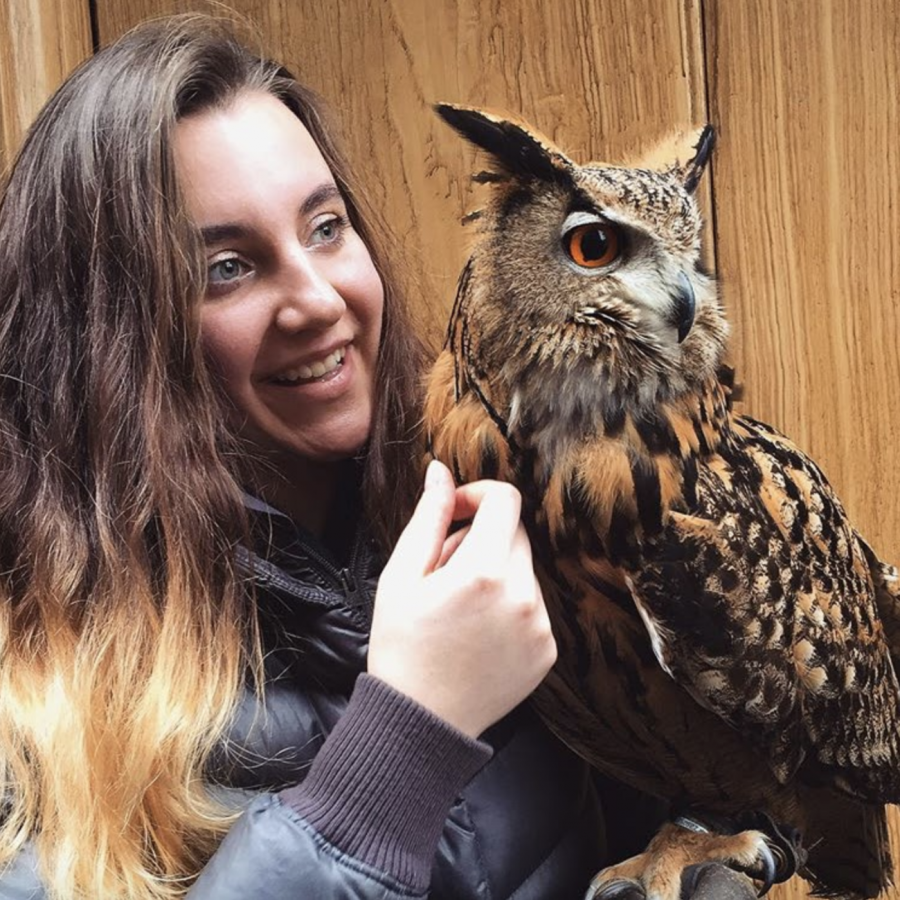Senior Spotlight: Lydia Culp
“Ideas can come from anywhere,” said Lydia Culp, an English (creative writing) and Russian and Eurasian Studies double major from Williamsport, PA. “So Hamilton—I mean, what a beautiful place to feel overwhelmed by the joy of being alive.”
Hamilton has clearly been an inspiring place for Culp, who will complete a Creative Writing Honors thesis in Poetry this spring. Her work, which often displays a distinct sense of place, focuses on small moments of human connection that inform our lives. It is at once familiar and de-familiarizing, allowing the reader to localize an anecdotal experience, such as star-gazing, in the context of its author’s life and our own.
Culp had not written many poems before coming to Colgate, but enrolled in an introductory composition course her freshman year that sparked her interest in the field.
“I think poetry felt very manageable,” she said, speaking of her time in the course. “It’s obviously a more concise form — which felt more approachable to me, even though it’s not necessarily easier.”
She paused for a moment, then said, “I’m a little stressed about my thesis. I’ll feel better once it’s written. If we were having this conversation at the end of my thesis as opposed to the beginning, I’d be like ‘oh, my god, yes, thank you, it was a labor of love,’ but now I’m like, ‘I’m an imposter.’”
Despite her reservations, Culp’s love of writing was palpable, although she was reluctant to explain why.
“I get really critical of trying to justify too much the things we enjoy,” she said. “I think sometimes you like what you like and it doesn’t always have an explanation. I believe in that. Sometimes, if you interrogate a love too heavily, it falls apart. The things you say sound right but they’re not always true.”
Culp’s insistence on approaching every situation cautiously lends her perspective a unique combination of analysis and empathy. In her poetry and our conversation, she appreciates things as they are, which imbues the quotidian with an unexpected significance.
Armed with curiosity and kindness, Culp quietly insists on finding fulfillment in everyday experiences, immersing herself in the daily wonder of everything around her.
In Sharon Olds’ poem “I Cannot Say I Did Not,” which informs Culp’s own work, Olds describes the simple wonder of existence in a similar way, writing “I asked, with everything I did not/ have, to be born. And nowhere in any/ of it was there meaning, there was only the asking/ for being, and then the being, the turn/ taken. I want to say that love/ is the meaning, but I think that love may be/ the means, what we ask with.”
Like Olds, Culp’s self-speculation is not hedonistic; in fact, in matters of poetry and in life, she is guided by an understanding of the ordinary as a sacred force.
She knows there is an ineffable grace to the “turn taken,” one that must be handled with love, diligence, and wit, carefully mastered and manipulated to be understood as an animating force behind the vitality of life. Culp lives by the delicate power of the prosaic, reveling in the small but wonderful places in which ideas are born.








